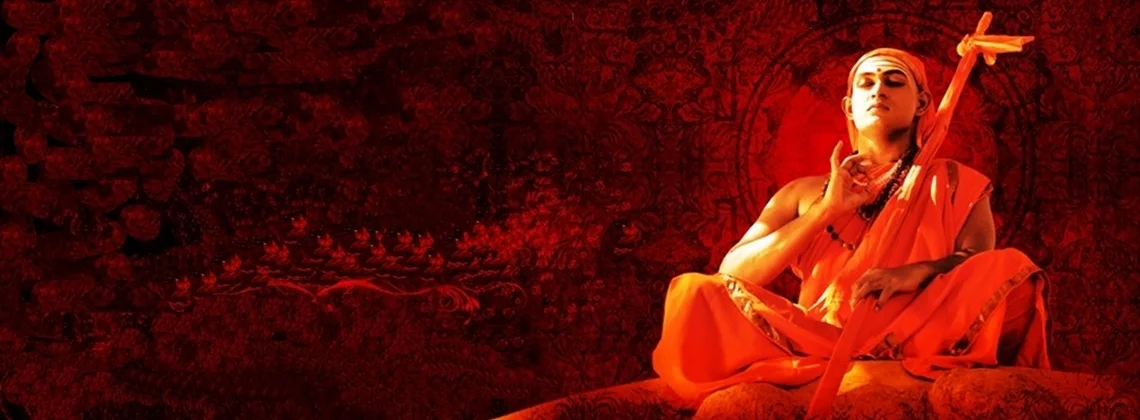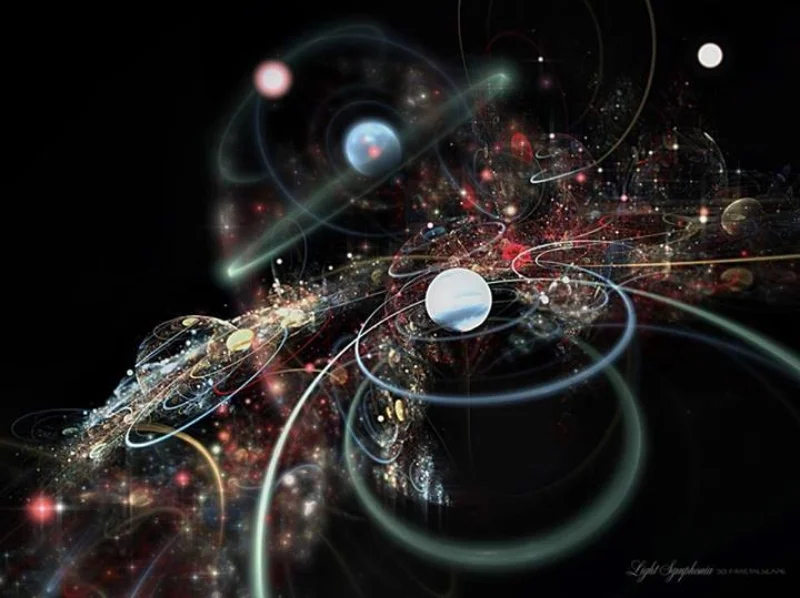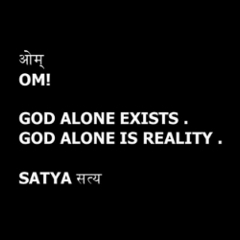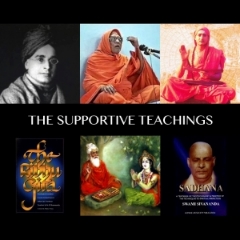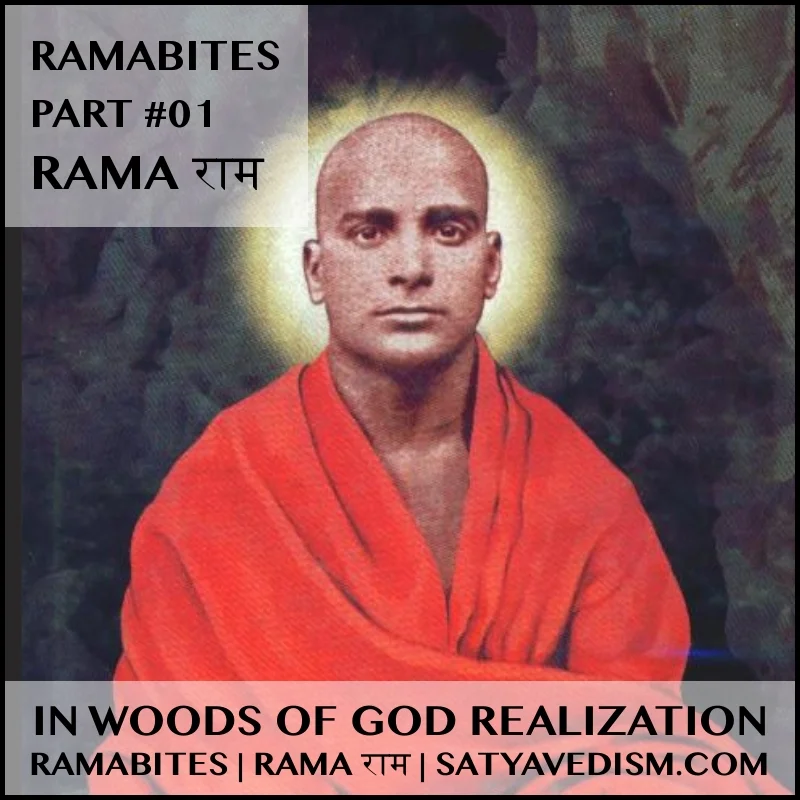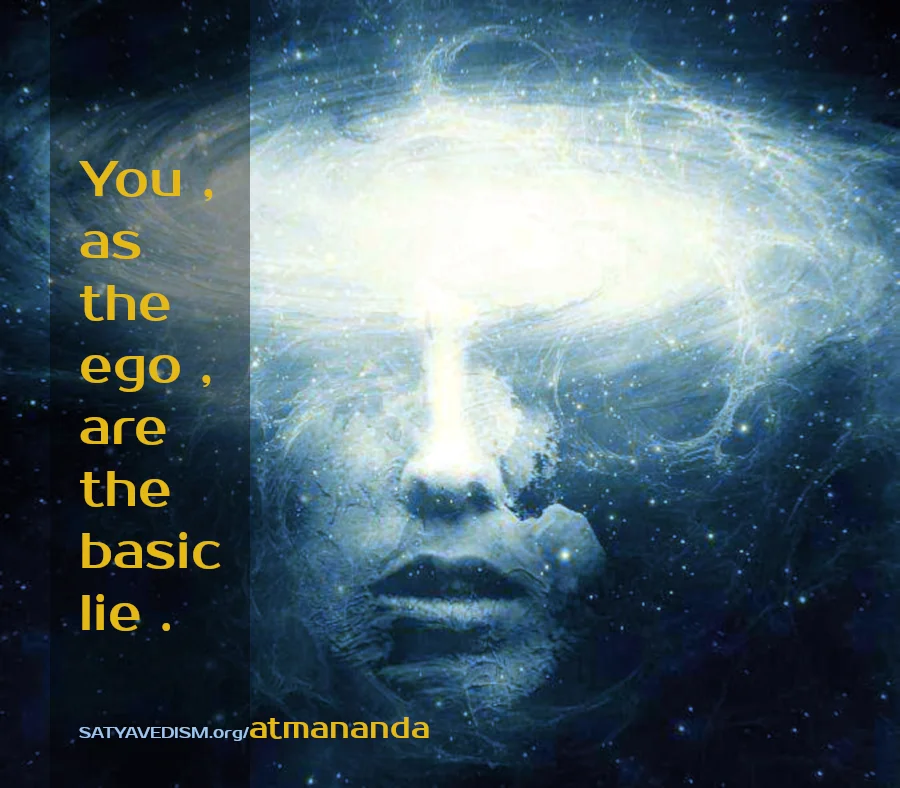BHAGAVADGITA | 5.15 | AMOETD | +RAMANUJACHARYA
| | homeBHAGAVADGITA | 5.15 | SRI ADI SANKARACARYA
( + SWAMI KRISHNANANDA & SRI RAMANUJACHARYA )
|| CHAPTER 5 | WAY TO RENUNCIATION | SIN & VIRTUE ||
Na adatte kasyacit papam na ca eva sukrtam vibhuh ,
ajnanena avrtam jnanam tena muhyanti jantavah || 5.15 ||
5.15 The Omnipresent neither accepts anybody's sin nor even virtue . Knowledge remains covered by ignorance . Thereby the creatures become deluded .
|| BHASYA 1 || SRI SANKARACARYA ||
Vibhuh , the Omnipresent ; na adatte , neither accepts ; kasyacit , anybody's — even a devotee's ; papam , sin ; na ca eva , nor even ; does the Omnipresent accept sukrtam , virtue offered by devotees .
Why then are such virtuous acts as worship etc , as also sacrifices , charity , oblation , etc offered by devotees ?
To this the Lord says : Jnanam , Knowledge , discriminating wisdom ; remains avrtam , covered ; ajnanena , by ignorance .
Tena , thereby ; jantavah , the creatures , the non-discriminating people in the world ; muhyanti , become deluded thus — " I do ; I make others do ; I eat ; I make others eat " .
|| BHASYA 2 || SRI KRISHNANANDA ||
Nadatte kasyacit papam na chaiva sukritam vibhuh ,
ajnanenavritam jnanam tena muhyanti jantavah || 5.15 ||
GOD does not take our sin or our merit , because merits and sins are meaningful only in individualised existence where consciousness works through the body and sense organs ; therefore , sin and merit cannot be attributed to consciousness that is not working through the sense organs and the individual apparatus of the mind .
Universal Existence does not think through the mind and does not perceive through the sense organs . Hence , the characteristics which are of the mind and the senses cannot be attributed to GOD .
Therefore , what happens to our punya karmas and sins , etc ? Is nobody punished for their sins ? People are punished by their sins . The sin itself punishes us ; somebody else , like a judge sitting in the court , does not punish us for our sins .
A sin is a peculiar dislocated , maladjusted situation that an individual occupies in this Cosmos ; this maladjustment itself is the sin . The sin itself punishes us , and there is nobody else from outside to strike a rod on our heads .
That is , a self-complete organism occupies a self-complete situation in itself , and its health and disease depend entirely upon the manner in which the components of the organism work . There is no third reality , no extra-physical reality coming and interfering with the wrong actions or the right actions of a person .
This is why it is said that the actions performed in the highest state of yoga cannot be called either merit or demerit .
Karma suklakrishnam : karmas are either black or white . But karmas are neither black nor white for the yogi . The blackness or the whiteness corresponds to the wrongness or the rightness of perception .
What we call sin is nothing but the solidification , condensation of wrong actions continuing for a long time ; and punya , or merit , is the condensation of good actions that we have performed .
To repeat once again what I said , a good action is that tendency in our consciousness which moves in the direction of larger and larger dimensions of itself , and a sin is a contraction of consciousness which moves more and more in the direction of the physical body ; and the worst sin is to have consciousness lodged in the body itself , and think that one is only the body .
Nadatte kasyacit papam na caiva sukritam vibhuh , ajnanenavritam jnanam tena muhyanti jantavah :
Due to a Cosmic ignorance , all individuals suffer . Their suffering or their pleasures are not products emanating from GOD .
The transcendence of GOD precludes all connections with the mutations of prakriti , though without GOD prakriti cannot move :
ajnanenavritam jnanam tena muhyanti jantavah .
|| BHASYA 3 || SRI RAMANUJACHARYA
Na adatte kasyacit papam na ca eva sukrtam vibhuh ,
ajnanena avrtam jnanam tena muhyanti jantavah || 5.15 ||
5.15 The all-pervading One takes away neither the sin nor the merit of anyone . Knowledge is enveloped by ignorance . Creatures are thereby deluded .
Because , IT , the Atman is all-pervading , ie , is not limited to particular area or space included in the bodies of gods , humans etc ; IT is not the relative or the enemy of anyone .
For this reason IT does not take away or remove the evil or suffering of anyone such as an offspring who is related and therefore dear to one ; nor does IT take away , ie , remove the happiness of anyone whom IT deems with aversion .
All this is the effect of Vasanas or subtle impressions of Prakrti .
How then do these contrary Vasanas originate in the case of one whose intrinsic nature is a described above ?
In answer it is said that Knowledge is enveloped by the darkness of ignorance . The Atman's Knowledge is enveloped , ie , contracted by preceding Karmas which are opposed to Knowledge , so that a person may be qualified to experience the fruits of one's own Karma .
It is by this Karma , which contracts Knowledge , and can join the Jiva with the bodies of gods etc , that the misconception that the bodies are the selves is produced .
Consequently there will originate the Vasanas or the unconscious subtle impressions born of such misapprehension of the self and the inclination to undertake actions corresponding to them .
Sri Krsna now brings into proper sequence what has been taught before in the following verses :
" You will completely cross over the sea of all your sins with the boat of Knowledge " ( 4.36 ) , and
" The fire of Knowledge reduces all Karmas to ashes in the same way " ( 4.37 ) , and
" For there is no purifier here equal to Knowledge " ( 4.38 ) .
Sri Swami Krishnananda ➤➤
|| UPADESA SAHASRI : A METHOD OF ENLIGHTENING THE DISCIPLE || I.I.6 || COMPLETE AMOETD SERIES ➤➤ | INTRODUCTION ➤➤ ||
|| THIS SCRIPTURE SERIES SOURCE || ➤
|| 1 || http://www.SATYAVEDISM.com ||
|| 2 || http://bit.ly/SRIADISHANKARA ||
http://www.SATYAVEDISM.com/shankara/amoetd/
SOURCE | SATYAVEDISM.ORG
